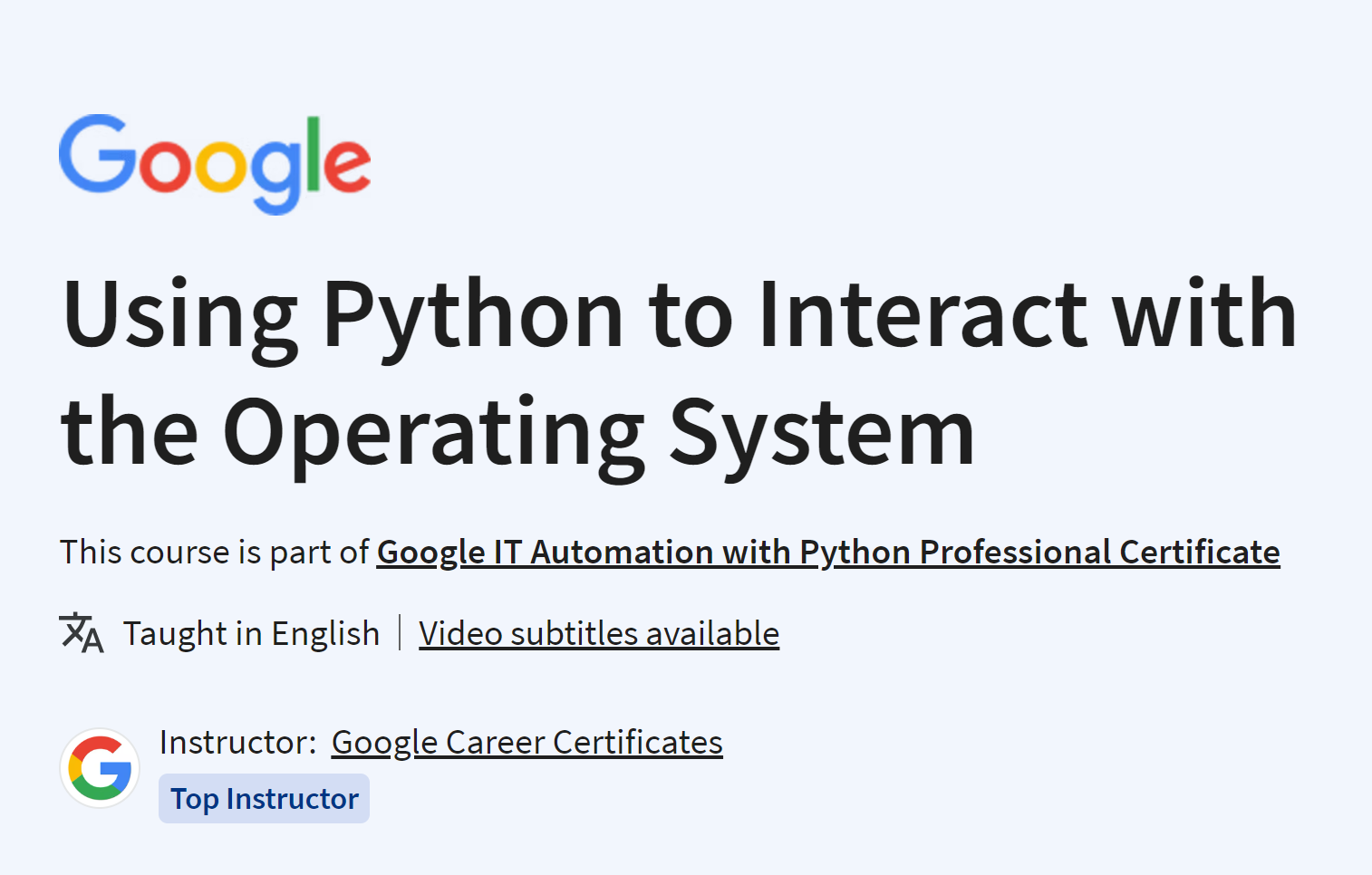What you'll learn
Setup, configure, and use your own developer environment in Python
Manipulate files and processes running on the Operating System using Python
Understand and use regular expressions (regex), a powerful tool for processing text files
Know when to choose Bash or Python, and create small scripts using Bash
Join Free: Using Python to Interact with the Operating System
There are 7 modules in this course
By the end of this course, you’ll be able to manipulate files and processes on your computer’s operating system. You’ll also have learned about regular expressions -- a very powerful tool for processing text files -- and you’ll get practice using the Linux command line on a virtual machine. And, this might feel like a stretch right now, but you’ll also write a program that processes a bunch of errors in an actual log file and then generates a summary file. That’s a super useful skill for IT Specialists to know.
We’ll kick off by exploring how to execute Python locally, and organize and use code across different Python files. We'll then learn how to read and write different types of files, and use subprocesses and input streams. We'll also dive into Bash scripting and regular expressions -- both very powerful tools for anyone working with systems. We'll even touch on automatic testing, which allows us to automate how we check if our code is correct. To finish, we’ll put all this together by using the tools that we’ve acquired to process data and generate automatic reports. We’ll also explain how to set up your own developer environment in your machine. This is a key step in being able to write and deploy powerful automation tools.







.jpg)





.png)

.png)






.jpg)




.png)











.png)
.png)










0 Comments:
Post a Comment